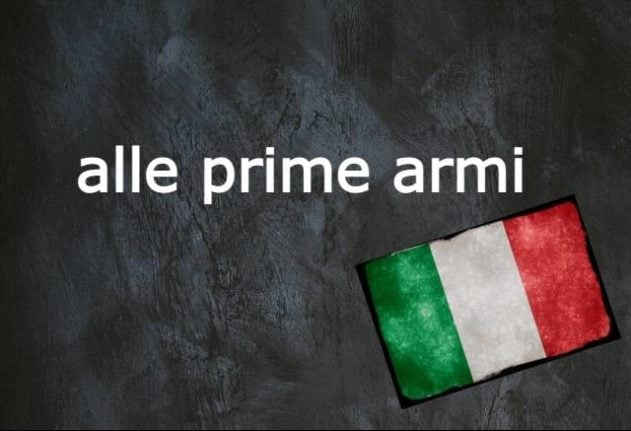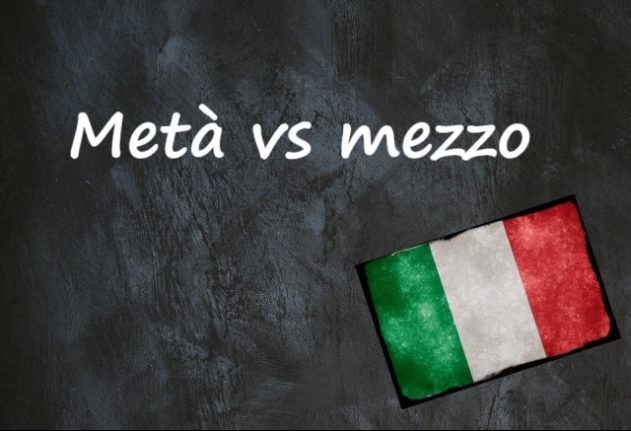At the risk of being chastised for resorting to well-worn clichés, if each Italian teenager had a cent for every time they were scorned on account of them being ‘alle prime armi’, Italy’s youth unemployment would likely be less of a cause for concern right now.
But, what does ‘alle prime armi’ mean and why are youngsters the most likely (and most unfortunate) targets of this peculiar expression?
Well, as some of you might have already guessed from the presence of the word ‘armi’ (weapons), the expression comes from the military world and refers, in its original meaning, to any young recruit being handed their weapons at the start of their training in the forces.
As such, the idiom’s literal rendition into English would be something along the lines of ‘[someone] holding their weapons for the first time’.
But, nowadays, the expression is hardly ever used in its first intended meaning as its scope has extended to encompass practically anyone who’s recently started a new job or craft and has little to none experience in the relevant field.

So, in its more recent interpretation, the idiom would actually correspond to English adjectives such as ‘fledgling’, ‘inexperienced’ or ‘green’, or expressions like ‘wet behind the ears’.
Alternatively, the Italian expression could also be replaced by nouns such as ‘beginner’, ‘rookie’ or ‘novice’.
Here are some examples of how Italians use ‘alle prime armi’:
Cosa ne pensa del mio lavoro di oggi?
Penso che sia proprio il lavoro di uno alle prime armi.
What do you think of my work today?
I think it’s the work of a novice.
–
Questo progetto di bilancio è un disastro. Si vede che sei alle prime armi.
This draft budget is a mess. It’s evident that you’re inexperienced.
–
Il vino non va aperto così. Sei proprio alle prime armi, ragazzo.
You don’t open bottles of wine like that. You really are green, boy.
As you can see from the above examples, the expression is often used in a rather patronising, slightly demoralising way, which, take it from an Italian born and bred, is sadly the default attitude of most Italian people over the age of 50 regardless of whether they are family members, long-time friends or just your superiors at work.
If it’s any comfort, you should know that this is just one of those hard and fast aspects of Italian culture that have been there from time immemorial and most people using the expression actually mean well.
And, if you’re not too happy about being described as a person ‘alle prime armi’, you’ll at least find no shortage of witty comebacks in the Italian language.
Do you have a favourite Italian word you’d like us to feature? If so, please email us with your suggestion.



 Please whitelist us to continue reading.
Please whitelist us to continue reading.
Member comments